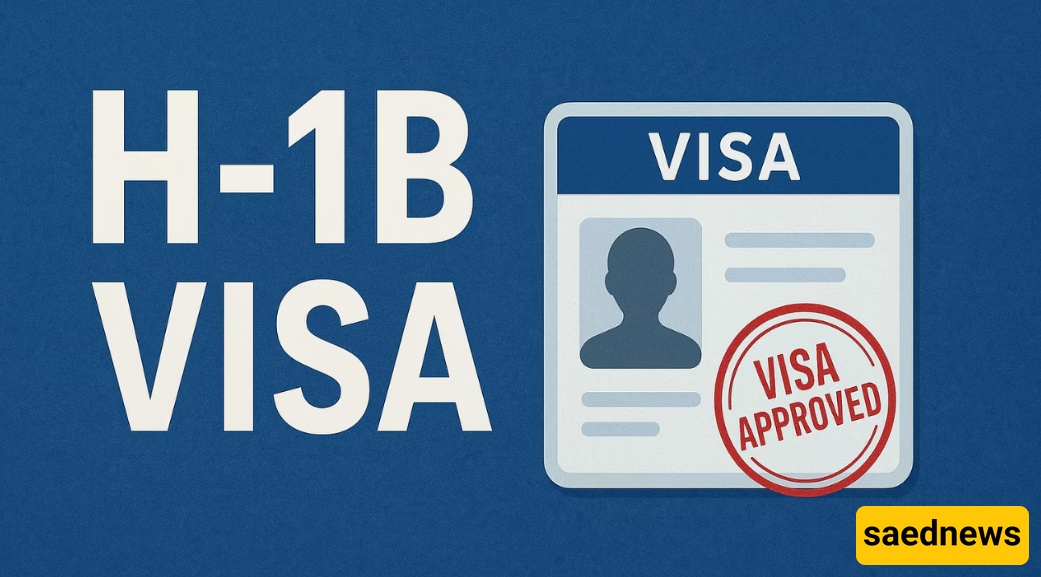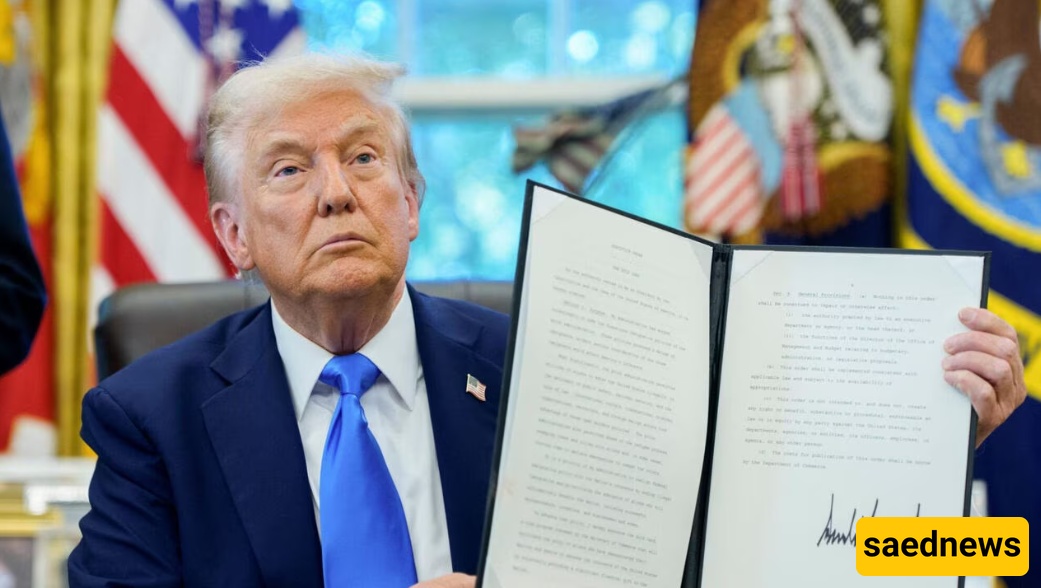SAEDNEWS: The Trump administration has announced a $100,000 fee on new H-1B visa petitions, prompting tech companies to advise workers to remain in the U.S., while legal challenges and exemptions are expected.

President Trump has signed a proclamation that imposes a $100,000 fee on new H-1B visa petitions, aiming to curb the misuse of the program. The proclamation, titled “Restriction on entry of certain nonmigrant workers,” argues that the H-1B program has been exploited to replace American workers with lower-paid foreign labor.

Top U.S. tech companies, including Amazon and Microsoft — among the largest beneficiaries of H-1B visas — have issued internal advisories urging employees holding H-1B or H-4 visas to remain in the U.S. for the foreseeable future. “If you have H-1B status and are in the U.S., stay in the country for now,” an internal Amazon note seen by Reuters stated.
The U.S. Commerce Secretary added, “Either the person is very valuable to the company and America, or they’re going to depart, and the company is going to hire an American.”
The H-1B is a non-immigrant visa that allows U.S. employers to hire foreign workers in specialized roles requiring at least a bachelor’s degree. Industries like IT, finance, and engineering heavily rely on H-1B visa holders.
The $100,000 annual fee applies to new H-1B visa applicants starting September 21, 2025. Existing holders do not have to pay but must return to the U.S. before September 21, 2025, if they have been abroad for 12 months.
The proclamation is valid for 12 months, with potential renewal decisions tied to future H-1B lottery outcomes.
Experts expect Trump’s order to face legal scrutiny. Doug Rand, a former senior official at USCIS, told The New York Times, “Tying an entry ban to a $100,000 fee isn’t likely to survive five seconds in court.” Tom Jawetz, former DHS attorney, compared the fee to “mobs demanding protection money,” questioning its legality.
The fee could reshape hiring strategies, incentivizing companies to rely more heavily on American workers or alternative visa programs. It also introduces uncertainty for international talent planning long-term careers in the U.S.
Trump’s H-1B visa fee marks a major policy shift with widespread implications for tech companies, employees, and the broader labor market. With legal challenges expected and exemptions limited, the coming months will reveal how the program and global talent mobility adapt to this controversial move.

